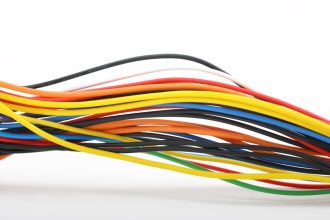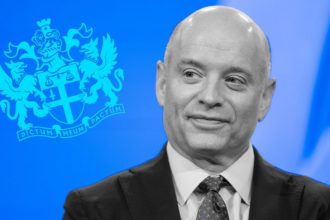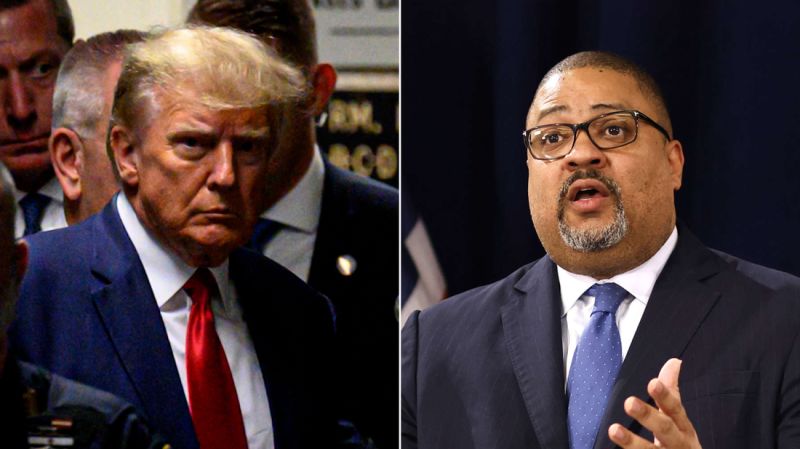Manhattan prosecutors urged a judge to reject Donald Trump’s motion to dismiss criminal charges related to a hush money payment, saying the former president is trying to use his political power to evade accountability.
Prosecutors also said while investigating the hush money case this year that they gleaned new information from “campaign insiders” that support their allegation of Trump’s guilt in the hush money payment to adult film star Stormy Daniels and its subsequent cover-up.
Last month, Trump filed a motion to dismiss the indictment on a number of grounds, including alleging it was brought six years after the alleged cover up in an effort to interfere with the 2024 presidential election.
The New York district attorney’s office urged Judge Juan Merchan to reject the argument and apply the law equally.
“Defendant repeatedly suggests that because he is a current presidential candidate, the ordinary rules for criminal law and procedure should be applied differently here,” the district attorney’s office wrote. “This argument is essentially an attempt to evade criminal responsibility because defendant is politically powerful.”
The DA also said that Trump has not lived up to his obligations in providing documents to them as they prepare for trial, which is scheduled for March 2024. Among the issues, prosecutors say, is whether Trump will call any expert witnesses in campaign finance, which was discussed as a potential defense during a pre-indictment meeting earlier this year.
Trump was charged in March with falsifying business records to commit or conceal another crime in what prosecutors allege was a cover up scheme to hide reimbursement payments made to Michael Cohen who paid hush money to Daniels to stop her from going public about a past affair with Trump before the 2016 presidential election. Trump has pleaded not guilty to the 34 charges and denied the affair.
In the filing Thursday, prosecutors defended their case, writing in a section with multiple redactions that they have testimony from “campaign insiders” that back up their allegation that Trump’s intent in entering into the hush money and reimbursement scheme was to influence the 2016 presidential election.
“This testimony provided additional powerful evidence of defendant’s criminal intent, both at the time he and his confederates executed the election fraud scheme and later when he sought to conceal that criminal scheme by falsifying business records,” prosecutors wrote.
They noted the grand jury heard testimony that public opinion influences Trump’s “ability to focus on policy priorities,” in addition to evidence prosecutors said could lead the grand jury to infer that Trump was trying to defraud election regulators. Specific information was redacted from the court filing.
Prosecutors allege the other crimes Trump was allegedly attempting to commit or conceal could include election law, tax laws, or the falsification of other business records.
As for why the charges were brought six years after the payment and reimbursement scheme was made – one of Trump’s common arguments against District Attorney Alvin Bragg – prosecutors placed the blame partly on the former president.
“Most important, there were compelling reasons that the People did not bring charges earlier. Defendant wholly ignores the significant obstacles – many imposed by him – that impeded the People’s investigation of this matter and reasonably delayed their ability to pursue charges.”
Trump challenged a subpoena for his tax records, which went to the US Supreme Court twice. The court ruled in the district attorney’s favor.
Bragg’s office is also seeking to quash Trump’s subpoena to his attorney-turned-foe Michael Cohen.
Trump subpoenaed Cohen for years of communications he has had with investigators and others as well as his tax records and drafts of his books, which have been critical of the former president. Prosecutors argue that Trump is trying to obtain evidence to aid his now-dropped $500 million lawsuit against Cohen for allegedly violating duties while he served as Trump’s attorney. Trump has suggested he may refile the lawsuit.
“Defendant’s subpoena to Cohen is an extraordinarily broad document demand that exceeds every parameter on the allowable scope of a trial subpoena,” prosecutors wrote in a separate filing Thursday.
Bragg’s office said it has already turned over communications with Cohen, his grand jury testimony and other related materials to Trump’s defense attorneys to prepare to defend against the 34-count criminal indictment.
Read the full article here





